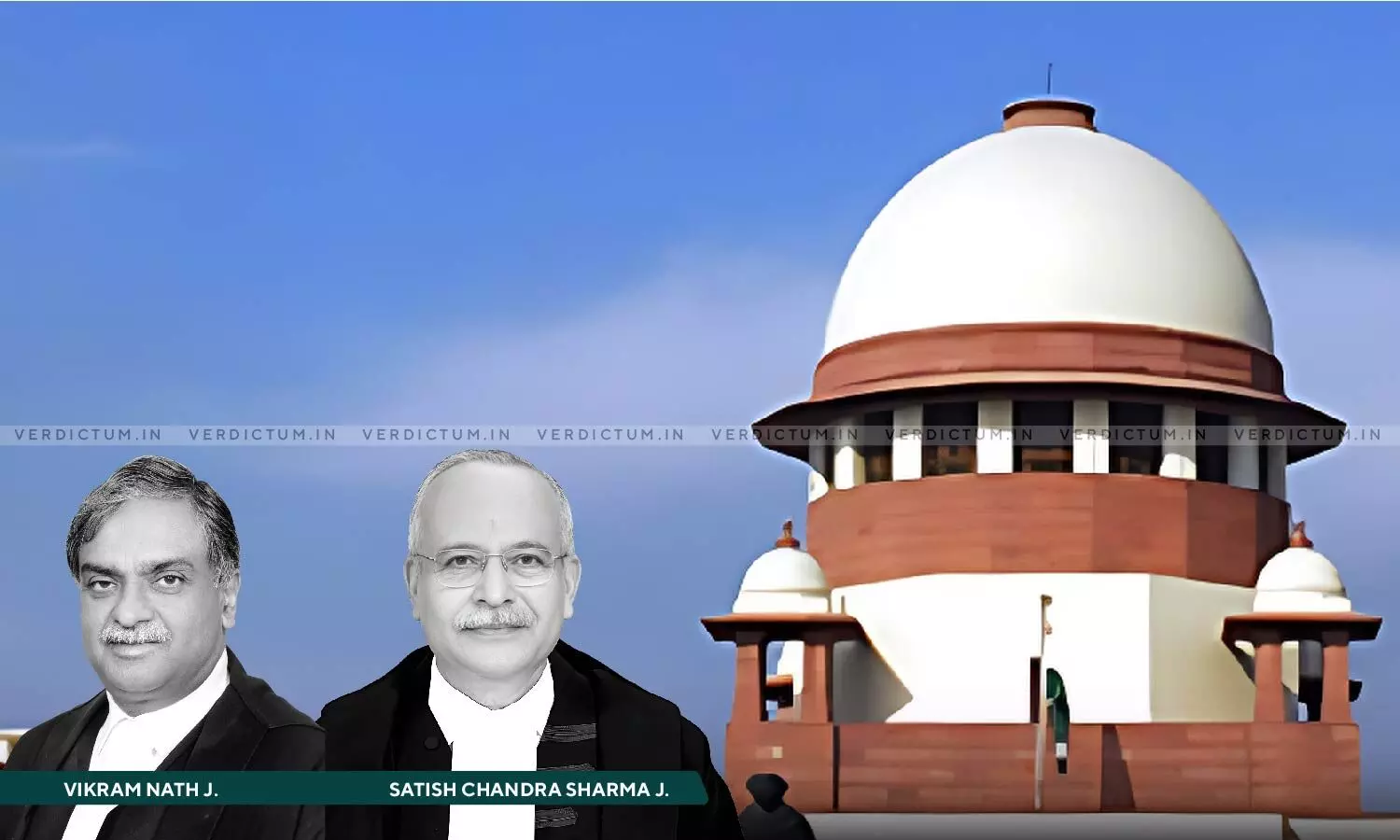
Registered Sale Deed Is Not Null & Void Merely Because It Is Executed Pendente Lite: Supreme Court
 |
|The Supreme Court observed that a registered sale deed executed during the pendency of the underlying suit does not automatically render it null and void.
The Court said that the law on impleadment of subsequent transferees has evolved in a manner that liberally enables subsequent transferees to protect their interests in recognition of the possibility that the transferor pendente lite may not defend the title or may collude with the plaintiff.
The Court was hearing an appeal against the judgment of the High Court, which dismissed the appellant's petition under Article 227 of the Constitution of India where the appellant had challenged the dismissal of his impleadment application under Order 1 Rule 10 of the CPC by lower Court.
The bench of Justice Vikram Nath and Justice Satish Chandra Sharma observed, “Therefore, the mere fact that the RSD was executed during the pendency of the Underlying Suit does not automatically render it null and void. On this ground alone, we find the Impugned Order to be wholly erroneous as it employs Section 52 of the Act to nullify the RSD and on that basis, concludes that the impleadment application is untenable.”
Brief Facts-
In the present case, the appellant and co-purchasers acquired farmland via a registered sale deed. The land, originally belonging to the plaintiffs (Respondents 1-17), was transferred to the defendants (Respondents 18-20) through release deeds, and subsequently sold to Respondent 21. Later, the plaintiffs filed a suit seeking to void the release and sale deeds. Respondent 21, aware of the pending suit, sold the land to the appellant during litigation. Lower Court dismissed the appellant's subsequent application to join the ongoing suit. The High Court upheld the dismissal, citing that the sale itself was a nullity under the doctrine of lis pendens (Section 52 of the Transfer of Property Act, 1882).
According to the Court, the doctrine of lis pendens as provided under Section 52 of the Act does not render all transfers pendente lite to be void ab initio, it merely renders rights arising from such transfers as subservient to the rights of the parties to the pending litigation and subject to any direction that the Court may pass.
The Court observed, “Permitting the impleadment of a transferee pendente lite is, in each case, a discretionary exercise undertaken to enable a purchaser with a legally enforceable right to protect their interests especially when the transferor fails to defend the suit or where there is a possibility of collusion.”
In the present case, the Court said that the appellant has been able to satisfy this Court on the possibility of collusion between the Respondents.
The Court noted that the Plaintiffs and Defendants are relatives and they approached the Court in the Underlying Suit after a substantial delay of 11 years.
Accordingly, as per the Court appellant, in the interest of justice, is entitled to impleadment in the Underlying Suit in order to protect his interests in the Subject Land.
Finally, the Court set aside the impugned order and allowed the appeal.